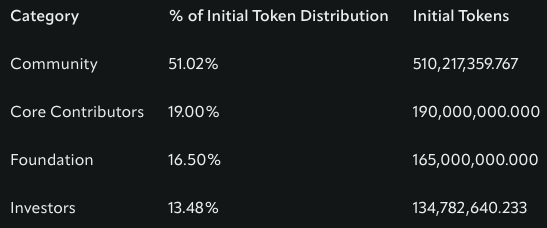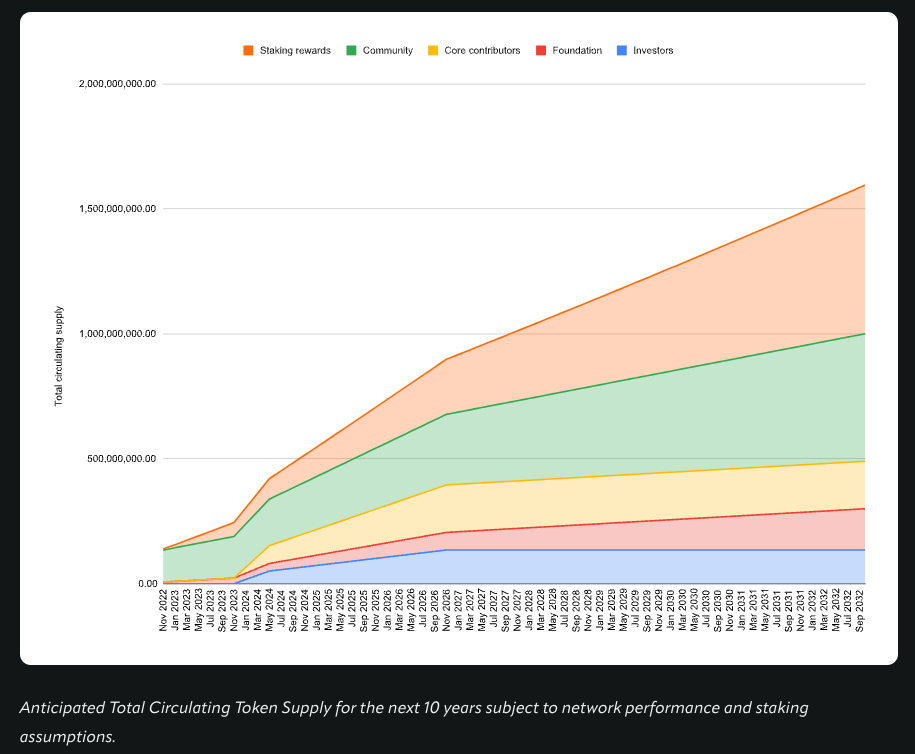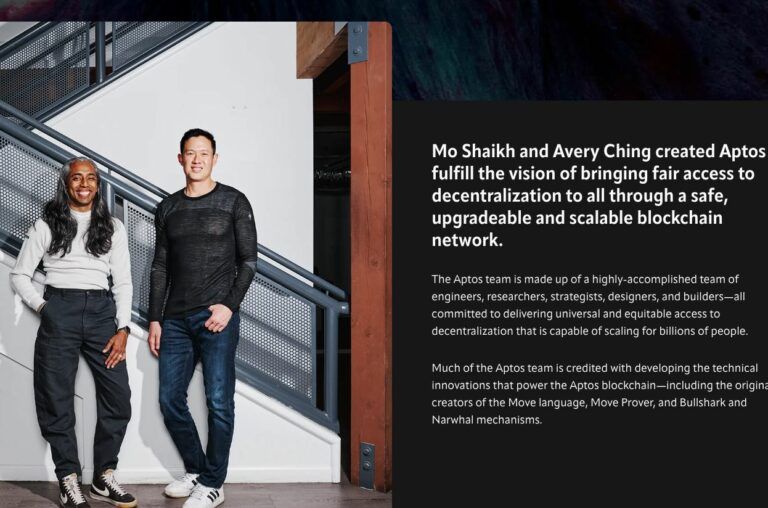On October 17 the mainnet for a new Web3-focused layer one (L1) blockchain named Aptos ($APT) went live, and the crypto community is buzzing with excitement.
The Aptos blockchain is being developed by a startup named Aptos Labs, which was founded by Mo Shaikh and Avery Ching. In its white paper, Aptos is described as “a safe, scalable, and upgradeable Web3 infrastructure”.
The white paper goes on to say that Aptos “offers new and novel innovations in consensus, smart contract design, system security, performance, and decentralization”:
- “First, the Aptos blockchain natively integrates and internally uses the Move language for fast and secure transaction execution. The Move prover, a formal verifier for smart contracts written in the Move language, provides additional safeguards for contract invariants and behavior. This focus on security allows developers to better protect their software from malicious entities.
- “Second, the Aptos data model enables flexible key management and hybrid custodial options. This, alongside transaction transparency prior to signing and practical light client protocols, provides a safer and more trustworthy user experience.
- “Third, to achieve high throughput and low latency, the Aptos blockchain leverages a pipelined and modular approach for the key stages of transaction processing. Specifically, transaction dissemination, block metadata ordering, parallel transaction execution, batch storage, and ledger certification all operate concurrently. This approach fully leverages all available physical resources, improves hardware efficiency, and enables highly parallel execution.
- “Fourth, unlike other parallel execution engines that break transaction atomicity by requiring upfront knowledge of the data to be read and written, the Aptos blockchain does not put such limitations on developers. It can efficiently support atomicity with arbitrarily complex transactions, enabling higher throughput and lower latency for real-world applications and simplifying development.
- “Fifth, the Aptos modular architecture design supports client flexibility and optimizes for frequent and instant upgrades. Moreover, to rapidly deploy new technology innovations and support new web3 use cases, the Aptos blockchain provides embedded on-chain change management protocols.
- “Finally, the Aptos blockchain is experimenting with future initiatives to scale beyond individual validator performance: its modular design and parallel execution engine support internal sharding of a validator and homogeneous state sharding provides the potential for horizontal throughput scalability without adding additional complexity for node operators.“
Earlier today, Aptos Foundation provided an overview of the Aptos protocol tokenomics. The initial total supply of Aptos tokens ($APT) at mainnet launch was 1 billion tokens.


Within the next couple of days, all major crypto exchanges are expected to list $APT, which is the native token of the Aptos blockchain:
For example, here are Binance and Coinbase tweeting about the upcoming list of $APT on their respective trading platforms:
In its blog post, Binance said that it would list Aptos ($APT) and would open trading for the following spot trading pairs at 1:00 a.m. UTC on October 19: APT/BTC, APT/BUSD and APT/USDT.
So, how is the crypto community reacting to the newest L1 blockchain?
Naturally, due to all the hype, a misunderstanding over the speed of the Aptos network, and the fact that information about the Aptos tokenomics was not available at the time of the Aptos mainnet launch, the crypto community on Twitter mostly seems quite skeptical.
Here are a few examples:
However, there were also some who seem genuinely excited about Aptos, which OKX calls “one of the HOTTEST blockchains on the market”:
One thing is for sure: October 19, which is when $APT trading is expected to go live on multiple crypto exchanges, is likely to be one of the most exciting days of 2022, and this injection of excitement is something that this bear market badly needs.








